Paul Kent: Wayne Bennett’s position in NRL’s expansion process exposes shortfall in coaching ranks
When the NRL flagged an expansion team for 2023, the early fear was there wouldn’t be enough players to fill the roster. The bigger concern might be whether there are enough coaches, writes PAUL KENT.
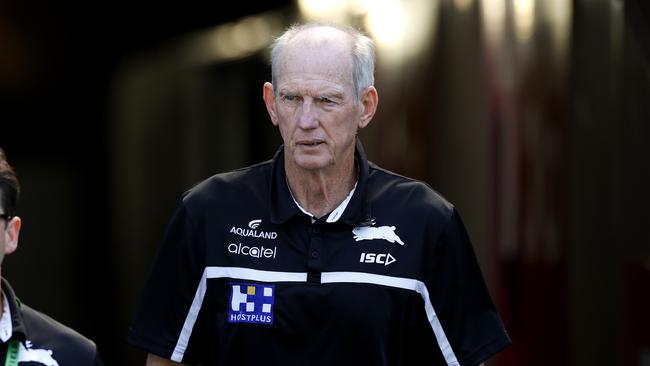
NRL
Don't miss out on the headlines from NRL. Followed categories will be added to My News.
The measure of Wayne Bennett’s considerable talents as a rugby league coach is that, at 71 and just a day after all three expansion clubs made their pitch to be the NRL’s 17th team, the third and final club declared Bennett was also their man to be coach.
The worry for rugby league is that, a day after three new clubs pitched to be the NRL’s 17th team, a 71-year-old man was the best option for all three.
Where coaching went, and why it is such a gamble nowadays, continues to be a growing concern for the game.
The race to the 2021 NRL Telstra Finals Series is on and every game matters. Watch Live & Ad-Break Free on Kayo. New to Kayo? Try 14-days free >
Bennett’s emergence as the man for the job shows the three expansion clubs have taken a risk-averse strategy. Bennett is their safest bet to get the bid through.
It highlights the weaknesses in clubs and the well-earned advantages Bennett has. But the safe choice is not necessarily the right choice.
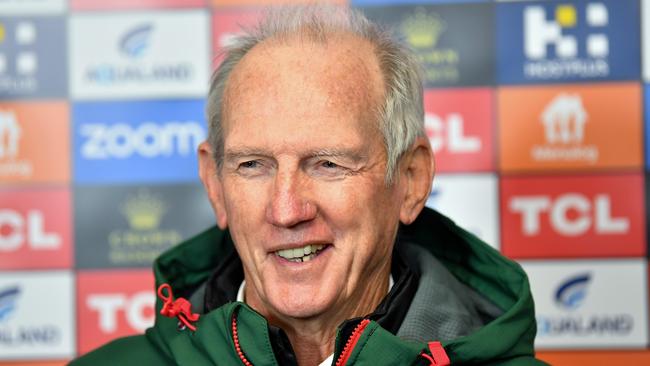
The most successful coaches are those who believe they have the long-term job security to plan for tomorrow, which was once Bennett’s strength at Brisbane.
He had a production line of talent.
Coaches without job security make short-term decisions with short-term consequences.
They cannot survive a rough period for fear of a board threatened by member unrest — as has happened recently at Canterbury and St George Illawarra — and so their choices are too often for short-term survival.
The fear is, the problem is becoming perpetual. Short-term coaches coaching short-term styles. Which explains why, across the game at the moment, there is a strong influence of what some like to call Melbourne-Lite.
With very slight variations, every team plays the same — the Melbourne way — some just do it better than others.
Coaches will argue it is the most effective style, given the rules and their interpretations, to win games. But the problems run deeper for the game.
Last Friday on SEN Andrew and Matthew Johns thought back to their own education and wondered where the football has gone from the modern playmaker.
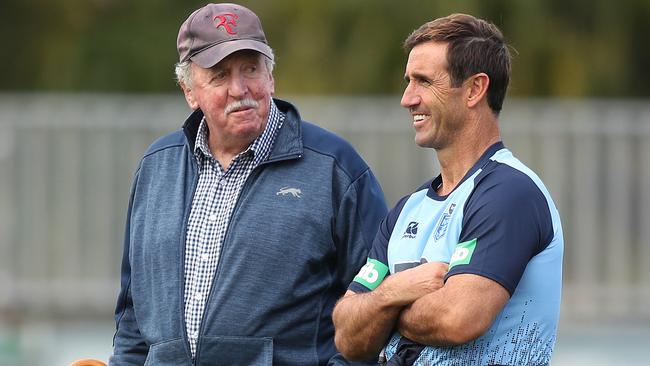
“Newcastle hasn’t produced a half, five-eighth or dummy-half for 20 years,” Andrew said.
“What does that tell you? The junior systems are broken.”
Matthew agreed.
“Who’s coaching them? Are they being taught anything about the science of the game when they are younger so that when they get to first grade it just flows, and it is natural and it gets embedded into their game?” he said.
It was engaging radio, spoken from experience.
When the Johns brothers were coming through junior football David Waite and Alan Bell, realising the Knights did not have the capacity to buy star players from rival teams, began a long process of coaching young kids the simple process of playmaking.
In quick succession the likes of the Johns boys, Matthew Rodwell, Brett Kimmorley and Danny Buderus emerged.
It does not exist anymore, except in rare pockets.
Nowadays, junior coaches concentrate more on coaching Melbourne-Lite instead of schooling their young players on fundamentals needed for bigger things ahead.
They coach “shape”, with a heavy emphasis on structure. Yet the moment it breaks down the playmakers seem lost.
They have lost all their footy instinct, that flow that Matthew Johns spoke about.
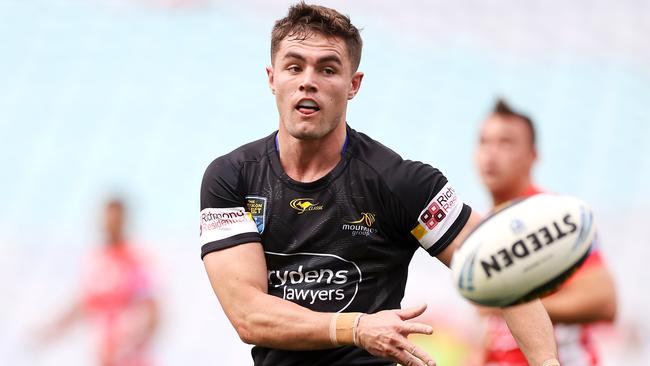
Kyle Flanagan was one of the best halves in junior football, a playmaker who could deliver a gameplan like a top-grade halfback.
But the moment the rules changed — the six-again rules were bumped up and the game shifted towards a more instinctive style — Flanagan was lost in a thousand thoughts.
Instead of being coached hard on the new style Flanagan was dropped and promoted and dropped again, his head in a spin.
How would Bennett coach a young half like Flanagan?
Bennett discovered simple philosophies to his coaching early, which he never wavers from.
Three simple philosophies, which have a decluttering effect on his players.
They must be fit, they must be able to defend and they must want to play for each other.
The rest is details.
Holding those philosophies close, Bennett starts every off-season with simple three-on-two drills and other catch-and-pass exercises that many players believe they have progressed far beyond by the time they reach the NRL.
Bennett understands simple principles give players something to fall back on when pressure is applied and their game begins to collapse.
Principles and actions trained into muscle memory.
The game’s greatest educator, Warren Ryan, used to finish every training session with six sets of six on the tackle bags.
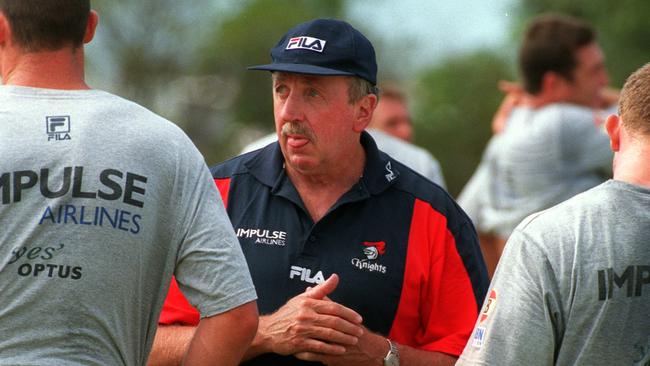
Ryan wanted the last thing on his players’ minds when they left the training paddock to be defence.
Every Tuesday night he would put his team through the same defensive drill. A basic fundamental, coached into muscle memory.
Repainting the Harbour Bridge, he called it. Simple principles that showed up under pressure.
Too many players nowadays privately complain they don’t fully understand the game plan.
Coaches have turned the job into an intelligence contest, and their complex game plans confuse players and fill them with anxiety. The players don’t want to concede the game plan is beyond them, so they say nothing.
On the field it transfers into playing with caution and uncertainty which, from the grandstand, looks like lack of effort.
So come Monday the coach pours more work into them, and repeat.
When the NRL announced the likelihood of an expansion team for 2023 the early concern was whether there would be enough players to fill the roster.
The bigger concern might be whether there are enough coaches.
More Coverage
Originally published as Paul Kent: Wayne Bennett’s position in NRL’s expansion process exposes shortfall in coaching ranks





